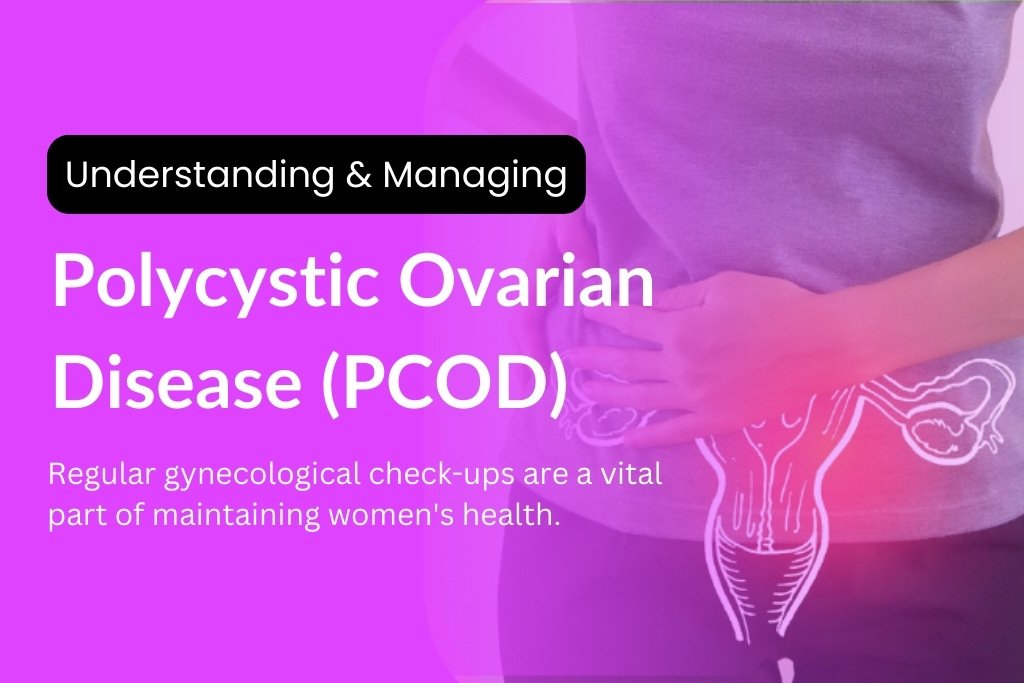Polycystic Ovarian Disease (PCOD) is a common hormonal disorder affecting women of reproductive age. It can cause various symptoms, including irregular periods, weight gain, acne, and fertility issues. In this blog, we will explore the causes, symptoms, and management strategies for PCOD.
Causes: PCOD is caused by an imbalance in reproductive hormones, leading to the development of multiple small cysts on the ovaries. Factors contributing to PCOD include genetics, insulin resistance, and lifestyle factors such as diet and physical activity.
Symptoms:
- Irregular menstrual cycles
- Excessive hair growth (hirsutism)
- Acne and oily skin
- Weight gain, especially around the abdomen
- Thinning hair or hair loss
- Difficulty conceiving
Diagnosis: A diagnosis of PCOD typically involves a combination of medical history, physical examination, and tests such as ultrasound and blood tests to measure hormone levels.
Management:
- Lifestyle Changes: Maintaining a healthy weight through a balanced diet and regular exercise can help manage PCOD symptoms.
- Medications: Birth control pills, anti-androgens, and insulin-sensitizing drugs may be prescribed to regulate menstrual cycles and reduce symptoms.
- Fertility Treatments: For women experiencing infertility, treatments such as ovulation induction and assisted reproductive technologies (ART) can be effective.
Conclusion: PCOD is a manageable condition with the right approach. By understanding the causes, symptoms, and management strategies, women can take control of their health and improve their quality of life. If you suspect you have PCOD, consult with a healthcare provider for a personalized treatment plan.








